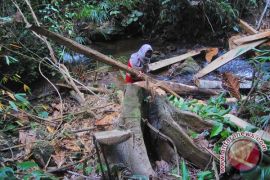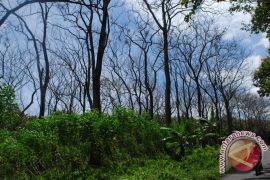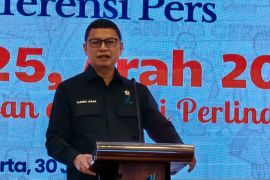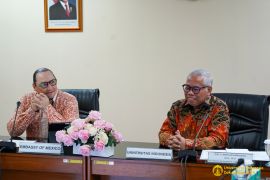"The greenhouse gas emission reduction Indonesia reached 8.3 percent. It`s a lot, but it could be expanded by among other things reviewing the existing concessions," Jonah Busch of the World Resources Institute (WRI), said here on Monday.
Speaking in a discussion on "Indonesia Forest Moratorium 2011-2013: What Next?", jointly hosted by WRI, Forest Watch Indonesia (FWI) and Puter Foundation, Busch suggested that the moratorium should also include secondary forests, mangroves, and new logging concessions, as well as review the existing forest concessions in order to achieve the government`s gas emission cut target of 26 percent by 2020.
The Indonesian government on May 20, 2011 issued Presidential Instruction No. 10/2011 on "The postponement of issuance of new licenses and improving governance of primary natural forest and peatland".
The presidential instruction, which imposes a 2-year moratorium on new forest concession licenses, will expire this May 2013.
Some speakers in the discussions basically said a two-year moratorium was not enough, and therefore it should be extended.
Jonah Busch said the moratorium should be extended until eight to ten years.
Daniel Murdiyarso, senior scientist of Bogor-based CIFOR (Center for International Forestry Research) believed that a two-year moratorium is effective only to identify challenges and problems, and therefore it should be extended.
Murdiyarso also reminded that the most important achievement should not be seen from the quantity but the quality by assuring that the moratorium covers more primary forests having high carbon density.
Yani Saloh of the Indonesian President`s Office on Climate Change, in the discussion said in principle a presidential instruction could not be extended.
But the moratorium policy could be extended by issuing a new presidential instruction.
In this case, the forestry ministry should report to the president about the past two-year implementation of the moratorium and give recommendations regarding the extension, she said.
The WRI discussion also emphasized the importance of improving forest governance and transparency as well as strengthening the law enforcement in the moratorium implementation.
Taryono Darusman of the Puter Foundation told the audience about the foundation`s findings on the moratorium implementation at the district levels.
Based on the foundation`s field studies in eight districts in Riau and Central Kalimantan Provinces, quite many local officers were not aware of the moratorium monitoring mechanism. ***4***
(T.F001.A060/b003/B003)
Reporter: Fardah and A. Fitriyanti
Editor: Fardah Assegaf
Copyright © ANTARA 2013










